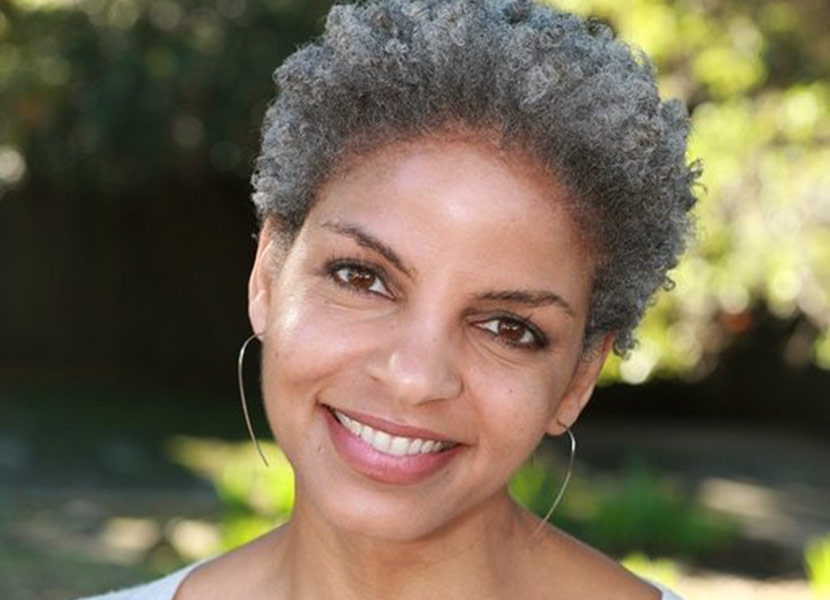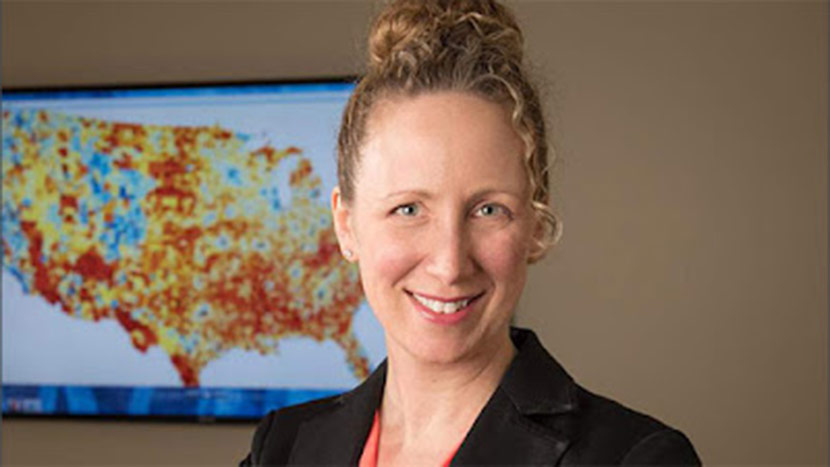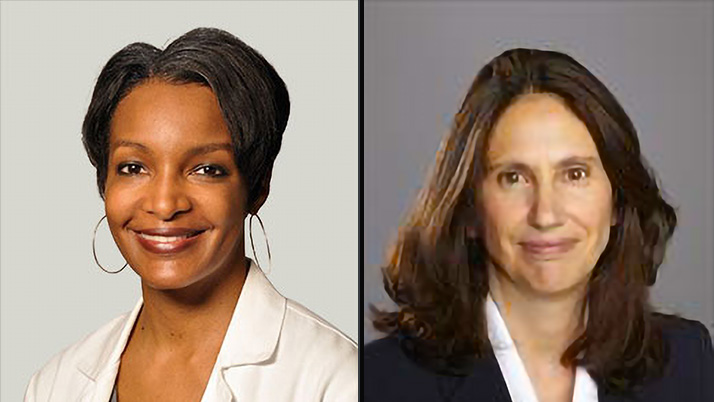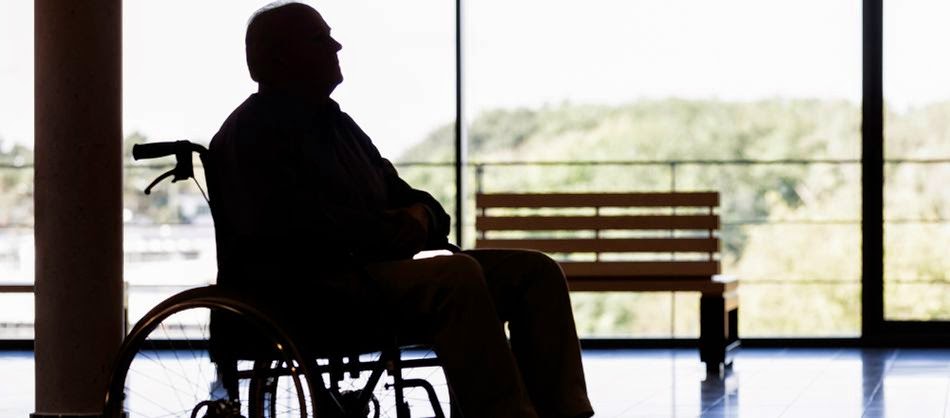
Today’s GeriPal Podcast features Vanessa Grubbs, a nephrologist and Associate Professor of Medicine at UCSF. She has blogged before for GeriPal (here and here).
Vanessa talks with us about her forthcoming book titled, “Hundreds of Interlaced Fingers,” to be released June 13, but available for pre-order now.
Dr. Grubbs’ book tells the story of her journey from primary care to nephrology to palliative care, of falling in love with a man to donating a kidney to him to marriage, and of the journeys of the diverse, older, complex patients she’s cared for with chronic kidney disease, who sometimes choose not to start dialysis.
She is one of the few, “palliative care” oriented nephrologists in the US. We need more!
The transcript is below, though you’ll miss Vanessa singing Prince if you only read!
Links:
Eric: Welcome to the GeriPal podcast. This is Eric Widera.
Alex: This is Alex Smith.
Eric: Alex, who’s in the office with us today?
Alex: We have Vanessa Grubbs, who is Associate Professor of Medicine at the University of California, San Francisco. She is a nephrologist and she has a new book out that we’re going to talk about today, Hundreds of Interlaced Fingers. Welcome to the GeriPal podcast, Vanessa!
Vanessa: Thank you so much, thank you for having me.
Eric: We all start off with the song. Do you have a song that Alex could sing?
Vanessa: Yeah. When he asked me this a few days ago I thought, “Well, I don’t know if my favorite song of all time is appropriate for what you all are trying to do,” but he said, “No, let’s go for it.” My favorite song of all time is “Adore” by Prince.
Eric: All right, you’re going to join in!
Vanessa: Yeah, I’m going to try.
Eric: I need your help with this.
Vanessa: Let’s get the falsetto.
Alex and Vanessa sing “Adore” by Prince.
Alex: Good enough for the podcast. Good enough for the podcast!
Eric: We got a band here!
Vanessa: Yes.
Alex: That was good, that was fun, that was good. All right, so you have this book, Hundreds of Interlaced Fingers. I love this cover.
Vanessa: Yeah, very exciting. Thank you. I didn’t get to pick it, but yeah, thank you.
Alex: Tell us how did you decide to write a book? What happened here?
Vanessa: I think I started dreaming about the book in 2012, just having the thought, “Hmm, maybe I can write a book.” Really it’s all very unplanned. The book is really a narrative non-fiction and starting with the fact that when I was a primary care doctor I met my husband who had been on dialysis for about five years at that time. I went with him to a kidney transplant evaluation appointment and was just really surprised and taken aback at how the system was set up and the fact that I really knew nothing about it as a primary care doctor.
It was that particular experience that, one, made me want to write about it, but also put me into action mode. For him, I decided to give him one of my kidneys, and for everyone else I really wanted to transition my career a bit and do research in access to kidney transplant.
Once I went out to talk to local nephrologists, really I was just looking for a project, and he says, “You know, you should be a nephrologist for just one tough clinical year. You know, it will change your perspective and it will change how your work is perceived.” I said okay and I applied for the fellowship program and they accepted me.
I was different in that I wasn’t really thinking about going into nephrology at all. I was really pretty stunned and amazed at the kinds of things that happen within nephrology. I completely agree with that advice to go into the field, because it did completely change my perspective and it totally changes how I approach my research, but it also further inspired me to write. A lot of the stories that I write in the book are about patients, families and colleagues that I’ve encountered over the past decade.
A lot of the things are just in a way kind of disturbing to me and wanted to write about things to not only just get them out for my own benefit, but really to try to reach as wide an audience as possible, so that people can be aware of these issues and hopefully at least think about thinking about things differently, maybe doing things differently. Really kind of the ultimate message is that we don’t always have to do the same thing all the time.
Eric: You don’t hold back in this book either. You talk about your experiences both for good and bad, both personal and professionally.
Vanessa: Yeah.
Eric: How did you think about that? How much should you display or put out in the open?
Vanessa: Yeah, there’s a lot of personal business in there. It is part memoir, and my kind of pledge when I started writing is that I would be honest, that I would be fully honest. Not only about things that have happened from others, but about my stuff too, good or bad, indifferent, I wanted to be honest about it. I don’t know how much trouble that’ll get me into, but hey, it’s the truth, at least as how I see it, so I stand by it.
Eric: You paint very vivid scenes when I read your stories.
Vanessa: Thank you.
Eric: Do you have any writing background?
Vanessa: No, I remember taking one class in college, just really being… I think I wrote a lot of bad poetry to get through medical school, but no real formal training until I really started thinking seriously about writing this book. As a research person I do a lot of scientific writing, but what I love about this kind of writing for a general audience is the artistic license that you have to be pretty with the writing and not just the medical terms. That’s what I really enjoy about it.
Alex: You’ve picked out a passage for us. This gets one into one of the major themes in the book that comes in sort of more towards the end a bit, about the intersection of nephrology and palliative care, which is a fascinating intersection and kind of a frontier area within the field of palliative care. Do you want to set up this passage for the listeners?
Vanessa: Yeah, sure. I’m going to read a little bit from the chapter called “Three Ladies” where I describe one patient who really started me down the trajectory of wanting to really focus on renal palliative care. Then two other patients that I was involved with their care, who had very, very different experiences in terms of dialysis and end of life issues. I’m going to read a little bit about one of these first, the second woman.
When I met Mrs. Durante in the pre-dialysis clinic she was spending most of her time in a wheelchair, since a long, complicated hospitalization three years prior left her there. The long hospital stay was followed by an ever longer stay in a nursing home, which she said felt like torture and nearly killed her. She never wanted to go back.
She was only 63 in chronological years, but as I read her medical record and looked at the frail, listless-appearing woman before me, biologically she seemed closer to her mid 70’s. She’d had strokes, she’d had surgery on the bones of her neck to release the hold they had on her spinal cord. She had heart failure, diabetes, so when she sat facing the fork in the road to complete kidney failure, she was unwavering in her refusal of dialysis. She’d had enough, she said.
Perhaps dialysis would not be beneficial in terms of adding quality or length to her life, I said and proposed conservative management of her kidney failure. We would treat the symptoms of kidney failure as they arose, without dialysis, accepting that eventually she would pass from kidney failure, if one of her many other health problems didn’t take her first.
Her pale blue eyes widened in surprise, as if she expected me to argue with her, perhaps as the nephrologist who had seen her before me did. “Don’t say that, you will die without dialysis.”
“I’d rather die than go through that.”
“Don’t say that. It won’t be so bad.”
“No, no, no, I don’t want it.”
Instead, I had inadvertently called her bluff. Her poker face was exposed. “Well maybe a little dialysis,” she conceded. She chose peritoneal dialysis and her daughter Josephina would help her do it. Jo was the youngest of Mrs. Durante’s three daughters and completely devoted to her.
I agreed that peritoneal dialysis was a perfectly rational choice too, and was happy to support her in that decision as well. I had softened from my original all or nothing way of thinking about dialysis. If very old or very sick, then don’t start it. If already on it and the patient becomes very old or very sick, then stop it. The problem with all or nothing is that most, in my experience, tended to opt for all in the off chance, or even delusional hope that all will restore the body to where it was before everything fell apart, or at least prolong its existence for a few more weeks, days, hours.
Alex One of the pieces you talk about in relation to these stories is, what is palliative care for people with renal failure? What does this mean? Because it’s not morphine, it’s not a morphine drip. It’s not a lot of the standard treatments that are available for people with cancer, for example. It has to do with reducing pill burden, matching treatments to patient’s goals. Could you talk a little bit about what does this mean? What is there at that intersection?
Eric: It’s not all or none, it’s not continue dialysis or you’re a quote-unquote a palliative care patient.
Alex: Right.
Vanessa: Right. I think as I’ve gone along in the field, my thinking about it is changing because of just seeing more and more patients. I think the entire field has a really long way to go. In part I think dialysis itself it just kind of lulls into this space where we think, “Okay, they started dialysis, so we’re done,” but there’s lots and lots of literature out there that shows that people who are dealing with kidney failure on dialysis have lots of symptom burden that we are, for the most part, not doing a great job at taking care of. Then when we think about all the advance care planning and end of life things, we’re just not really addressing it at all, which is sad because a good 20% of our patients, our dialysis patients, die every single year. I think we’re just creating a lot of unnecessary suffering when we refuse to acknowledge that and really address it.
Eric: I’m always impressed on service, on the palliative care service, when I talk to individuals. They may be dealing with other things besides their dialysis, they may have metastatic cancer, they may absolutely refuse other life-sustaining treatments. “I don’t want to go back to the hospital, but dialysis, yeah, I want to continue that,” because it’s their community, what they’ve been living with for the past five years. It’s the people that they enjoy, they talk to, it’s their social environment.
Vanessa: Yeah, dialysis is a funny thing, because I think because it can happen in the outpatient setting, it’s looked upon very differently than hospital interventions and things like being intubated and being on feeding tubes and that kind of thing. Dialysis is, this is just what we do. “As long as I go to dialysis, I’ll be okay.” That’s the attitude that a lot of people have, without really realizing that it’s still end-stage kidney disease and it’s still taking its toll.
I think that’s really what sets nephrology and palliative care apart from particularly oncology, where it’s a little bit more predictable what prognosis is for people. Rather than nephrology, our population is just so diverse that it’s really hard to predict it. Our default does tend to be just, “Let’s just keep going.”
Eric: With that said, one of your fastest growing populations, they’re elderly, nursing home patients, who in your book you quoted, “They don’t do very well.”
Vanessa: Right, and there is a growing body of literature, mostly from Europe, where they’ve shown that people who are 75 and older and have serious illnesses besides end-stage kidney disease, particularly dementia, ischemic heart disease, they are not likely to gain any survival benefit from dialysis. They’ll probably live just as long without dialysis as with it.
Then there’s this issue of the quality of life. Dialysis is hard, it’s hard on the body, particularly the older the body is. There is this question of, are we doing the right thing for people by putting them on dialysis just because they have kidney failure?
Eric: The other thing that your book made me think about, because you talked a lot about the different in your book about hemodialysis and peritoneal dialysis. I can’t even imagine the last time I saw a patient on peritoneal dialysis.
Vanessa: Right.
Eric: But you also quote that other countries are very different in that. Can you expand a little?
Vanessa: Yeah, a lot of other countries have a much larger prevalence of people on peritoneal dialysis. In part because it’s a lot cheaper and people … That is the attitude that if you want to continue living you will do peritoneal dialysis because hemodialysis is so expensive and you can’t afford it, so this is what you do.
In this country my experience is it’s more like, “Well, do you want to do your dialysis every day at home or do you want to come to the center where the nurses and doctors will take care of you?” There’s no limitation on – sky is the limit – in terms of what we’ll spend.
I think a lot of people out of fear, like feeling like they can’t possibly do peritoneal dialysis at home, which is another misperception, but also just feeling like somehow because it does cost more, or because the nurses and technicians and doctors are more often involved, that it’s somehow better.
Eric: Could it also be how we’re framing the issue to our patients?
Vanessa: Exactly.
Eric: Because I would imagine there may be a financial interest for dialysis centers and others to choose one over the other.
Alex: Money! What?
Vanessa: You’re getting into to all the stuff. You’re getting into all of it. You know, I do touch on all of this stuff in the book, but I think, yes. When dialysis first became a thing there was a shortage of chairs, but now as the population of people with end-stage kidney disease grows, so do the number of dialysis facilities. There’s no shortage of chairs and it is big business.
Eric: 30 billion dollars, is that what I read? Somewhere around there in your book?
Vanessa: Oh gosh.
Alex: Is big business.
Eric: Big business.
Alex: There is that quote from one of the nephrologists, “I would dialyze a dead tree if I could bill for it.” Something like that?
Vanessa: Yeah, and granted, I think the system is currently set up for … I mean there’s some pretty perverse incentives, but at the end of the day, for the most part, I do have to say, because I do believe that most of us, most nephrologists, are really doing things that we feel are in the best interest of our patients, and are not so much thinking about the dollars. But at the end of the day we get paid more for seeing people on dialysis than we do in the clinic. The more we see them on dialysis, the more we get paid, so yeah.
Alex: It probably has to do as well with sort of the unconscious. Like they’re influenced in ways they can’t even appreciate, by the financial factors. That’s something Sharon Kauffman’s written quite a bit about. There’s like this invisible hand that sets up the terms and the conversation in the room, that the doctors and patients aren’t even aware of, but a lot of decisions had been made structurally before.
Vanessa: Right. I think too a lot has to do with what we are exposed to. There’s several studies that have shown that people who, like in nephrology training, if they’re not really exposed to peritoneal dialysis or home hemodialysis, they tend not to talk about these things to patients. One, because they’ll be giving away their patients, but two, they don’t really know what to say about it. I think all of that does factor into the fact that the vast majority of our patients with kidney failure are on in-center hemodialysis in this country.
Eric: That discussion about unconscious bias, or potentially conscious biases or systems issues that lead us towards certain outcomes for a certain population, also brings up issues that you also deal with your book, is… disparities in care. Particularly, one of the things I learned is black people on average, wait an additional two years for transplant than white individuals. Is that right?
Vanessa: Yes.
Eric: You talk about a fair amount of other disparities in care. Can you expand on that a little bit more?
Vanessa: Yeah, I think that was one of the issues that I was so taken aback when I first went with my husband to his transplant evaluation. He is black, and you know, just to listen to people talk, I just felt like, “Why are you all surprised that there are race disparities in kidney transplant? Look at how this is set up.”
Eric: Yeah.
Vanessa: Yeah, and feel like there’s just a lot of things in place that could be overcome if we wanted to, to make us have more equal access to kidney transplant. I do think people are thinking about it and trying. Like for example, a new rule went into place in December 2014, which basically said that regardless of when you get referred for kidney transplant, once they’ve determined that you’re an eligible candidate, it dates back to when you started dialysis. Which does kind of even the playing field a little bit, because there’s at least one landmark study a long time ago that showed that blacks were slower to get through to each step in the process to transplant.
Even for my husband, it was a year after he started dialysis before he was referred, and he had to bring it up. His nephrologist didn’t bring it up to him. One of the things I talk about in the book is, I mean it’s good, that rule is great and it does help, but it doesn’t go far enough, because people can be listed for kidney transplant long before they get to the point of needing dialysis.
Since the waiting time, how long you’re in line waiting for a kidney, is still one of the most important factors, it really matters when you get on that list. Because of our system and who has access to care, it is different for different people to have one, access … I think just starting with one, knowing that you have any kind of chronic kidney disease. Most people are unaware of it. Then having access to a nephrologist, because only a nephrologist can refer you to kidney transplant. Then they have to, that person has to look at you, think about transplant as an option for you, and actually make the referral. There’s lots of places in there, where there’s room for just the racism on a system level, but then biases, conscious or unconscious, on a personal level.
Alex: Mm-hmm (affirmative), it’s really interesting, speaking of what we started with, about how you’re very honest in this book about the journey that you’ve taken, and sort of investigating these racial disparities in nephrology care. Early one you’d written an essay that was called “Good for Harvest, Bad for Planting,” is that right?
Vanessa: Yes.
Alex: You talk about how you sort of have been on a journey of discovery of all the multiple levels at which this complex process plays out, that results in disparities. I wonder if you could say a little bit more about that.
Vanessa: Yeah, that article was published in Health Affairs, the narrative matter section, in 2007. My husband and I had surgery in 2005, so it has been a full 12 years since our surgery and he’s doing very well. But that article, I wrote it as a primary care doctor. One of the things that I acknowledge in the book is that I didn’t have it 100% right, because I didn’t know and you have to be, or at least I had to be on the other side of things to see all the actual nuances that go into people getting a kidney transplant.
Still, I believe at the end of the day, if we wanted to make it more accessible and more equitable, we could. Because we’ve shown that we can, we did it with dialysis.
Alex: Right. What are some of the steps that you think we should take to make the next step in addressing and eliminating those disparities?
Vanessa: Particularly for transplant access?
Alex: Mm-hmm (affirmative).
Vanessa: I think the more, I guess automated we could be, the better it could be. For example, take it out of the hands of individuals and some of that will mean that we have to overcome our kind of silos and electronic medical records and things. For example, if there was a national repository that kept up with people’s lab results and lab testing, then patient could be informed directly about where their kidney function is and have a little trigger to, “You should talk with your doctor about this.”
Also, if nephrologists were given that trigger as well, and then ask, “Why haven’t you referred this person?” I think it would just force people to think about things. I think that would be an important step towards correcting our problems.
Eric: I’d like to ask about, not just the big things, but the little things that we can do in each of our practice. I was particularly struck by, is it okay if I read a little bit of your book?
Vanessa: Sure, sure.
Eric: One passage, and I’ll read it here.
Medical school trains us to begin each case the same, however many year old, black, white, Asian, Hispanic, girl, boy, man, woman. The past medical history… blah, blah, blah, presented to the clinic emergency room with this or that or the other. This day I purposefully left out race. A 26 year old man with no significant past medical history presented to the clinic with proteinuria and microscopic hematuria.
I couldn’t even get through the patient’s medical history, which might give us clues to why the patient had proteinuria and tiny amounts of blood in his urine, before the most brilliant of fellows in my group raised his hand, “What’s his race?” He asked. “Green,” I said.
Vanessa: Yeah, I did. It was kind of lost on him, but yeah.
Alex: When I am next on the wards and the palliative care service, or the geriatric service, like, how should I respond? How should we be teaching people how to give that one liner?
Vanessa: I do think we need to get out of the habit of mentioning race in those first lines, because I do think it automatically paints a picture. We can’t help it, we’re human being and if someone starts telling us a story we develop an image of that. In medicine it starts shaping our differential for what could possibly be going on with the person.
We start out with this really broad differential, and every detail changes it. If I say a 26 year old, I’m automatically not thinking about geriatric conditions. If you say man, I’m automatically not thinking about things related to women, and if you mention race, then I’m automatically picturing that person and associating whatever I think about that race, whether I’m aware of it or not. That colors the differential too and narrows it in a way that I think really limits our thinking and at the end of the day, probably does a disservice to our patients.
Alex: I remember one of the most important lessons I learned in residency was, I won’t have assumed a race. I was called out by the patient, rightfully so, and it made me rethink the vast majority of times when people actually put that in their one liner, did they ask?
Vanessa: Right.
Probably not.
Eric: Probably not. How does the patient self-identify?
Alex: Yeah.
Vanessa: Right.
Alex: It has important implications, not just for medical presentations, but also as you note in the book, how we can’t calculate standardized values for blood tests for creatinine, for renal function for example, which might be based on race. Or pulmonary function, there are several examples that I remember learning in medical school. We had an adjustment factor for the patients.
Vanessa: Right.
Eric: Creatinine clearance! Right, we have an adjustment factor? Didn’t that work?
Vanessa: I don’t think so. I was really upset about it, particularly as I went into nephrology and realized the implications of it. One important implication is for kidney transplant referral, because you have to have an estimated function of this is the glomerular filtration rate. 20 ml a minute of blood flowing through your kidneys, every minute of every day, that is when you can be referred for kidney transplant. Whereas above 60 ml a minute is considered relatively normal.
When the unadjusted GFR is 20, the race, like if black factor can be more like 25. In my own experience I’ve seen the different between 25, a GFR of 25 and 20 can be years. Again, years that a person could have been on the wait list.
I think, I had an opportunity to ask one of the people very involved in the equation about did they, what was the thought in terms of putting a race label on it? The conversation didn’t go so well, but basically it comes from muscle mass. It’s supposed be a proxy for muscle mass, because the more muscle you have, the more creatinine and therefore it’s going to make your kidney function really higher than it would be if you didn’t have such great muscle mass.
But because it was a small study, my thing is it was only a couple of hundred people and they were only white and black. From that, you’re making an assumption on an entire population and you’re leaving out a lot of people.
Eric: A lot of people.
Vanessa: A lot of people.
Eric: Yeah.
Vanessa: That gets into other groups, like I have several American Samoan patients, or my Hispanic patients. They’re like, “So where do I fit in?” I just think it gets into a lot of weirdness about our American history around race and I don’t think the average clinician is really thinking, “Oh, my patient is black.” Not, “Oh, do they have large muscle mass?” Or, “Does my non-black patient have large muscle mass and should I be using this adjusted equation or not?” I just don’t think most of us are that thoughtful about it, because we like an easier path.
Alex: Are those equations still used?
Vanessa: Oh yeah, definitely.
Alex: So antiquated, right? It’s like they institutionalized-
Vanessa: Yes.
Alex: -right? Like a form of race-based decision making that makes no sense. It should be based on muscle mass if that what you’re trying to present. Right?
Vanessa: Right, you would think, but yeah. I think we have a lot of hangups about race within medicine, which is curious to me because we’re supposed to be so science driven.
Eric: Right. I learned so much more from your book and love the fact that you painted these really beautiful, vivid stories.
Vanessa: Thank you.
Eric: When does your book come out?
Vanessa: It comes June 13th, and this is from Harper Collins Amistad. You can pre-order now directly from the publisher, or you can also go to Amazon or the indies like Books A Million, Barnes and Noble.
Eric: Do you have a national tour? Are you going to other places?
Vanessa: It’s not completely national, but I am doing a lot of radio, TV, book signings, along the west coast, particularly L.A., Portland, Seattle. I’m doing some things in Chicago, Atlanta, as well as national things through New York.
Eric: Great. We’ll have a list of those places on the GeriPal website associated with the podcast.
Vanessa: Wonderful.
Vanessa: I’ll be, I’ve had a blog, thenephrologist.com, for three years now, but I’ll be expanding that to be a full website with the same name and all. I’ll have a page that will feature all of my various events as well as they come up.
Alex: Terrific. Should we do a little more Prince?
Eric: Wonderful.
Vanessa: Are we going to start at the-
Alex: Yeah, we’ll start at the top again.
Vanessa: Really? You won’t do the verse?
Alex and Vanessa sing “Adore” by Prince
Vanessa: Okay. I thought we were going to get into the verses, man.
produced by: Eric Widera
transcript edited by: Sean Lang-Brown
post by: Alex Smith



